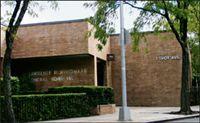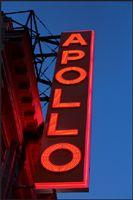Decoded (44 page)
Authors: Jay-Z
Tags: #Rap & Hip Hop, #Rap musicians, #Rap musicians - United States, #Cultural Heritage, #Jay-Z, #Entertainment & Performing Arts, #United States, #Music, #Rich & Famous, #Biography & Autobiography, #Genres & Styles, #Composers & Musicians, #Biography

3.
“Superstition” is the Stevie Wonder classic, of course;
The Writing’s on the Wall
was the name of the record album from Destiny’s Child.
4.
In the song I keep talking about seeing it all before and it’s true—not that I was prophetic, but that I always used visualization the way athletes do, to conjure reality.
5.
“Face to the ceiling” and “knees on the floor” creates a simultaneous image of straining ambition and humble prayer and forces your mind to reconcile that contradiction.
6.
This refers to the biblical verse about the meek inheriting the earth. If I’m Gordon Gekko in this life, do I sacrifice my place in heaven?
7.
I'm close to the cover physically—it’s on the floor, just out of arm’s reach—but also close to the cover in the sense of being nearly successful enough to be on the cover of the magazine.
8.
Time
had me in their “most influential” issue with builders and titans and “people you never heard of,” the kind of wealthy industrialists who don’t get on the covers of magazines but quietly run the world.
9.
Lots of business lingo piles up here. I’m turning the business world’s terminology into the raw material for the rhyme.
10.
This is an aggressive final image to make the point that I’m like a lot of people that came out of hip-hop—our ambition was never to just fit into the corporate mold, it was to take it over and remake that world in our image.
MOMENT OF CLARITY
1.
The most famous lines in this song are about my philosophy of music and the tension between my commercial instincts and my instincts as an artist. But the first verse is all about my father.
2.
After
Reasonable Doubt,
my next three albums were called
Vol. 1, Vol. 2,
and
Vol. 3,
with subtitles—
In My Lifetime, Hard Knock Life,
and
Life and Times of S. Carter.
The
Volume
series was meant to emphasize the connection between the albums, that each was a continuation and expansion of the same basic story.
3.
This sounds cold, but the truth is that my father left my family for good when I was young and didn’t reenter my life until I was an adult. Three months after we had our first conversation in twenty years, he died. My mother had pushed for the meeting because she knew he didn’t have long and she didn’t want him to die with our issues still unresolved. So at the funeral I was more intrigued than devastated.

4.
When I did finally see my father again and we stood face-to-face, it was like looking in a mirror. It made me wonder how someone could abandon a child who looked just like him.
5.
My father and I didn’t have a lot of deep conversations before he died, but we did have one important one. When I first reconnected with him, I hit him with questions and he came back with answers until I realized nothing he could ever say would satisfy me or make sense of all the feelings I’d had since he turned his back on us. In the end, he broke down and apologized. And, somewhat to my surprise, I forgave him.
6.
The death of my father’s brother, my uncle Ray, changed everything for my pops. Ray was murdered outside of a crowded Brooklyn bar and everyone knew who did it, but the police didn’t do anything about it. My dad swore revenge and became obsessed with hunting down Uncle Ray’s killer. The tragedy—compounded by the injustice—drove him crazy, sent him to the bottle, and ultimately became a factor in the unraveling of my parents’ marriage. As a kid, I didn’t know all this. I had no idea that it was the death of his brother that undid my dad. When I found this out I realized that yeah, of course every father that bounced had a reason. I didn’t excuse him for leaving his kids, but I started to understand.
7.
Although this verse starts off on a cold note—I seem indifferent and even smirking about his death—that’s only me being honest. I didn’t cry. I didn’t know him that well. But at the same time, it was so important that we did meet up before he died. It was important for me to hear him say he was sorry and for me to hear myself say, “I forgive you.” It changed my life, really. I wish every kid who grew up like me could have the same chance to confront the fathers who left them, not just so they can lay out their anger, but so they can, in the end, let that anger go. That anger still stunts so many of us.
8.
I was lucky in some ways to have come into the game on my own two feet—along with my partners Biggs and Dame—and not because the industry wanted to make me the flavor of the month and then throw me away.
9.
I love that this has become such a popular line for people to riff off of in hip-hop—Lupe Fiasco did a great song called “Dumb It Down” that brought the whole thing full circle, for example—since the point of the line was to provoke conversation.
10.
Kweli is a great MC—as is Common—and they’ve both carved out impressive careers without big records. They’re great technical MCs, but there is a difference between being a great technician and a great songwriter. I deeply respect their craft, but even the most dazzling lyrical display won’t translate to a wide audience unless it’s matched with a big song.
11.
This whole lyric is overstated—and I love Common—but I’m trying to make a point. I didn’t come into the rap game just to enjoy my own rhymes; I could’ve done that by myself in my house with my tape recorder. I came into the music business to reach as many people as possible—and to get paid.
12.
I use “sense” or “since” six times in the preceding nine lines, alternating between them, a technical flourish that works as its own commentary.
13.
Ultimately, every artist has to make a choice about what makes the most sense for them, and I’m not mad at whatever they decide. To honor the art of lyrical rhyming on one hand, and try to reach a wide audience on the other, is an art form in itself. It’s not easy, but that’s just another challenge that I love to take on.
14.
The homonym of tiers and tears connects prison tiers with crying—but you can’t cry in prison (at least not out in the open).
15.
This geometric series—block/square, ball/circle, and then triangle—is the kind of unnecessary technical challenge I like to drop into songs just to give the lines extra energy and resonance. The “triangles on our wall” refer to platinum plaques;
Billboard
magazine’s symbol for platinum sales is a triangle.

16.
Even though earlier I made the point about doubling my dollars, here I’m being clear that the rapping isn’t just for sales, because I’ve already sold millions—so there’s still something deeper at work.
17.
A play on Abraham Lincoln’s Gettysburg Address—except instead of his “four score and seven years ago,” my “four scores” are four number one albums, and “seven years ago” goes back to the beginning of my career.
18.
This is about not having fear: “Scars’ll scab” means that even if you injure me, I’ll recover; “I can dodge and jab” means that swinging on me won’t stop me; and even “three shots couldn’t touch me.” The whole point of the “moment of clarity” is that after I confront my own demons, I’m left with nothing but “my balls and my word,” which makes me untouchable.
19.
Biggie was huge, arguably the greatest of all time. Carrying him on my back means taking the weight of all he represented. But the image of Biggie—who wasn’t skinny—on my back reinforces how hard it is to do.
BREATHE EASY (LYRICAL EXERCISE)
1.
I developed that habit of holding rhymes in my head from working so hard on the streets. When I was still a teenager I might be on the corner when a rhyme came to me. I would have to run to the corner store, buy something, then find a pen to write it on the back of the brown paper bag till I got home to put it in my notebook. I couldn’t keep doing that because I had to concentrate on work, not on scheming to get my hands on brown paper bags. So I created little corners in my head where I stored rhymes. Once I got good at it, I actually preferred it as a technique. I’m not sure it’s better than writing shit down, but it’s the only way I know. When I was working on the
Kingdom Come
album, I tried to sit down and actually write my rhymes, but it just doesn’t work that way for me.
2.
“Spar in the ring” referred to performing at the Apollo in Harlem. Malcolm was assassinated at the Audubon Ballroom, a couple miles away.

3.
“Spring train in the winter” refers to the fact that most of my albums dropped in the fall or winter. The suicide drills refers to the drilling I get from doing press before the album releases, which I find as tedious and uncomfortable as athletes find suicide drills.
4.
Hova is, of course, short for Jay-Hova, which is a play on Jehovah—a piece of wordplay that irritates the fuck out of some religious people. They should just relax and listen to the next line.
5.
These exercise metaphors describe the hustler’s routine—running, pullups, and pushups.
6.
Stretching coke means figuring out ways to cut it with baking soda so you have more than you originally purchased. You can only stretch the work if it’s already premium quality.
7.
More exercise imagery used to describe a hustler’s threats: squats, sets, reps, and showers. This whole rhyme—a bonus track on the
Blueprint
album—is really about technical rhyming, like the rhymes Jaz and I used to come up with just to challenge ourselves. In this case, the challenge is to create as many clever rhymes as possible using the exercise metaphor—I tried to fit one into every line, and nearly succeeded. The whole thing curves in on itself in this final double entendre in the first verse: The “lyrical exercise” is to compose
lyrics
about
exercise
.
Other books
Finding Home: A Club Dark Novel by Reagan Hollow
Godforsaken: Book 1 (Shade of Light) by Suren Hakobyan
Close To Home (Westen Series) by Ferrell, Suzanne
Bradbury, Ray - SSC 07 by Twice Twenty-two (v2.1)
The Shadow of the Soul by Sarah Pinborough
Ghost of a Dream by Simon R. Green
Everlasting Enchantment by Kathryne Kennedy
What My Eyes Can't See by Mocha Lovan
The Dark Lady's Mask by Mary Sharratt
Fiery Possession by Tanner, Margaret
